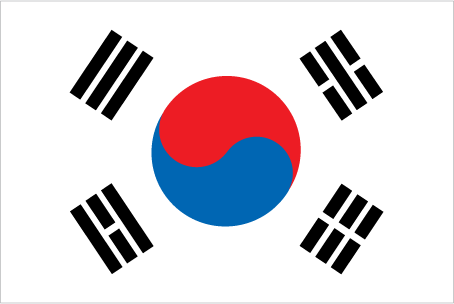After graduating from my Masters and completing the necessary evil of unpaid internships, I began to receive messages at the oddest hours from a friend living in South Korea. It was 2012 and with Christmas approaching I had a brief respite from career searching until the New Year. With no idea what to do next each message from my friend made me look more and more at this country. Finally, I began the application process and by the following February I was flying to Daegu, South Korea to begin a year of teaching Elementary children how to speak English. I ended up staying for 14 months and teaching became just a small part of my life out there.
For a country that, aesthetically, appears like the technology laden future we are all moving towards, South Korea is conspicuously old-fashioned. Moreover, after living there for just a month you are aware of the coffee shops, the fast food restaurants and recycled fashion that points towards its gradual Americanisation. South Korea is both in the future and in the past, it's both maintaing its Asian culture whilst pulling America and the West ever closer. Essentially, it is a country teeming with contradictions. For the fourteen months I lived there I want to relay the 14 most curious and interesting and wonderful aspects of South Korea in a way that Lonely Planet may have missed.
North Korea
Whilst waiting in Heathrow airport to fly out to South Korea I had BBC news telling me that North Korea were testing their nuclear weapons. However, in South Korea no-one cares. They are desperate for a reconciliation with those divided by the 38th parallel but, when it comes to nuclear bombs from the North, they are indifferent. You become aware of this very quickly, to the point where desperate emails from home inquiring about safety become comedy gold. When I approached a year in the country, the “bellicose rhetoric” of the North came out again like clockwork. A Korean colleague reminded me that every year, around February, the U.S. And South Korea complete their military practices and it is for this reason that the North reappear. Like an unwanted birthday.
Korean Couples
Mainstream culture is very uniform in South Korea. I can leave work on a Friday and by Monday all of my students would have acquired some new quirk that was inaugurated over the weekend. One of these quirks is the habit of couples, of all ages, to wear the same clothes; same shoes, hats, trousers, jumpers. Everything. Even shops show mannequins exhibiting matching leopard print underwear.
Soju
Japan has sake, Brazil has cachacha, Russia have vodka and Korea have soju. The most popular selling brand of alcohol in the world, despite only being consumed in one country, a bottle of soju is an extra limb for Koreans. The green, 60p bottle of alcohol tastes bad but stubbornly refuses to disappear. Usually appearing alongside a Korean barbecue and bloated, red faces the drink is an obligation in South Korea. You can also add it to beer – mekju in Korea – and create 'somek', d'ya get it? The fact that it is becoming popular around the world makes no sense to me.
K-POP
K-pop is coming to the West and it's frightening how unaware everyone is about it. Girls Generation won the video of the year award at the inaugural YouTube Awards and Big Bang received a generous 4/5 rating by a misguided Guardian journalist for their Wembley show last December. When a new song arrives it is as if there is a national effort to push it towards all parts of the country and it overflows. Coffee shops, phone shops, bars, students will sing the song, the same one song, over and over. K-pop is contagious and don't say I didn't warn you.
Bosses
The Korean boss is a leviathan. They are everywhere at all times. My boss would occasionally throw classroom doors open and, standing arms akimbo, stare through me. These Mexican standoffs could last for 10minutes, all existing in silence and when he did speak it was in a Joycean stream-of-consciousness that had no end or aim. He could make us do anything on a whim. He once compared himself to a sleeping, wounded lion in the sahara. Bizarre but strangely charismatic, his capriciousness was frightening.
Korean Events
The one thing more frightening than my boss was the announcement of an upcoming work event. It is difficult to articulate the paranoia that surrounds work events. Anything can happen. On two occasions I had to arrive at work for 08hrs00 Saturday morning to attend a Garlic Festival and a Kite Festival, the second of which ended up with me and the rest of the foreign teachers impulsively being made to dance on stage on national TV. There was also a Korean co-worker's wedding which began with a ceremony that everyone talked over and closed with two lascivious Korean women shooting confetti out of their trumpets. I also attended the funeral of my boss's, boss's mother. I had never spoken to my boss's boss, let alone his mother. The funeral also took place at 11pm. And there was the Mud Festival and a Cherry Blossom festival. Too many events and too few characters to continue.
Kimchi
Ubiquitous and boring, kimchi is everywhere. Along with its partner in crime, plain rice, this boiled, spiced cabbage dish appears with every meal regardless of the time of day. My students ate it for breakfast, lunch and dinner, Korean astronauts took it to the moon with them, people say “kimchi” - in the same vain as us saying “cheese” - before taking pictures and according to Korean epistemology, it reduces lung cancer. It's just cabbage.
Ahjussi and Ahjumma
Like Avon Barksdale's crew in The Wire, Aja Shis and Aja Mas run the corners in Korea. Korea follows Confucian tradition and there is a reverence for the elderly to the point where they are above the law. They can skip queues, elbow past you, say what they want and occupy all of the parks. They have perms and their own uniform and the men can start drinking at any time they consider appropriate. They are also free to sleep anywhere.
Education System
On average Korean children go to bed between 11pm and 1am, some of my elementary students drank coffee and a few of them would cry when getting a single answer wrong in a test. Korea is infamous for its education system, as well as its “tiger mums”, and everything you read is true. Students attend school between 9am and 3pm, go home and eat in time to go to Science Academy for 4pm, followed by English academy at 6pm. Finishing their day at around 9pm to eat and then finish homework before bed. Then wake up and do it again, even on Saturdays. What happens whens they finish High School? Boys then complete their obligatory military service.
Plastic Surgery
Supposedly there was a man in Korea who successfully sued his wife for creating ugly babies. His argument was that he was unaware she had a cornucopian amount of plastic surgery and was misled. Plastic surgery is ominously popular in Korea, women in their twenties frequently have their eyelids and nose altered in a way to make them more “Western”. Sitting on a subway is a carnivalesque experience when surrounded by plastic noses and large eyes.
Norabangs
When its 4am in England and you've been drinking cheap alcohol for far too long you are already in bed staring at a spinning ceiling. But in Korea you go to a karaoke bar until breakfast. Karaoke bars, or norabangs, are large, dark rooms replete with sofas where you can bring your own alcohol and sing whatever '80s power ballad you want. Everyone has to try a norabang once, invariably arriving on their first night in the country. Norabangs are an institution and even Korean trains have small norabang booths.
Smartphones
In my first week a Korean co-worker took me to a phone shop. He put 4 Samsung smartphones on the desk and told me to choose one. There was no discussion of price or how many texts/minutes I will have or anything. After declining to take one of the phones both my co-worker and the man in the phone shop looked at me as if I had cursed both of their mothers. They couldn't understand why I would not want a Samsung smartphone. This extended to my students as well. Whenever a Korean would see me with my throwback-white-pay-as-you-go-flip-phone I would be met with the same response: “you not have money?” A fashion statement as much as a social statement, Samsung is the monarchy of South Korea.
Food
Yes, they do eat dog and I ate dog. But, more importantly, they also eat: Jjimdak, Haijenguk, Kimchi Jigae, Gu Mandu, Kimchi Mandu, Korean Barbecue, Dak Galbi, Jae Uk Dak Bap, Bbibimbap – the list goes on. Korea know how to make good food and you seldom pay more than £5. They not only taste delicious, but they are all sociable meals. The food frequently comes in a big pot in the centre of the table whilst everyone shares. The alpha male will offer the food around whilst the second in command makes the beer order. The only question then is: Cass or Hite? I will be a Cass man for the remainder of my days.
Jjimjibangs
Unlike England, South Korea still enjoy communal baths and they are called Jjimjibangs. Despite never showing affection on the streets and despite girls having to cut their hair short when at school and despite me not being allowed to wear shorts to teach when it is 35degrees outside, Koreans love to get naked and have baths together. At first it is disconcerting, but once you've thrown that far-too-small-towel to the floor and walked through those steamed-up glass doors you enter an uninhibited, unclothed haven. Saunas, hot tubs, pools and strange spaces bathed in red light where you can have a siesta fill the room. The Jjimjibang became integral to my day and became natural. When I returned to my gym in Northampton, I became aware of how awkward we all are as we remove our shorts with one hand, holding our towel with the other.
Like every country, Korea has its idiosyncrasies and I am happy to have experienced all of them. For me and most people who lived there, Daegu is an eccentric liminal environment. No-one can stay forever but it is very tempting to do so, for Daegu is a moveable feast.


